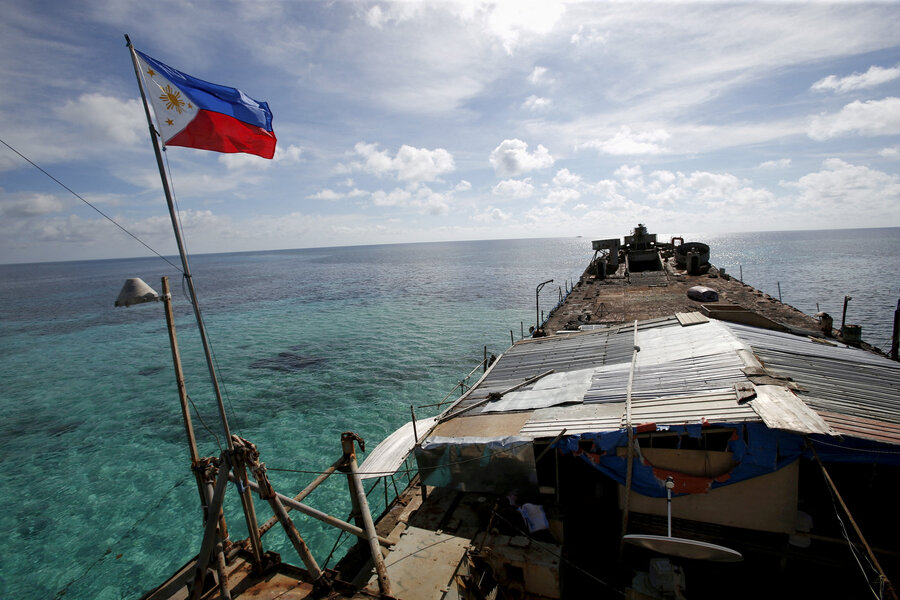Tensions escalated in the South China Sea as Chinese ships engaged in aggressive maneuvers against Philippine vessels conducting a routine resupply mission to Ayungin Shoal, known locally as Second Thomas Shoal. The incident, which occurred on Monday, saw Chinese ships from the People’s Liberation Army-Navy (PLA-N), China Coast Guard (CCG), and Chinese maritime militia (CMM) ram and tow Philippine boats, causing damage and endangering Filipino sailors.
The National Task Force for the West Philippine Sea strongly condemned what it described as “illegal, aggressive, and reckless actions” by the Chinese forces. The task force accused China of violating international law, including the United Nations Convention on the Law of the Sea, by endangering lives and impeding lawful maritime activities within the Philippines’ exclusive economic zone (EEZ).
Despite the provocative actions, Filipino sailors demonstrated restraint and professionalism, continuing their mission despite the challenges posed by the Chinese vessels. Defense Secretary Gilberto Teodoro Jr. condemned China’s behavior, emphasizing that such actions undermine regional peace and stability.
The international community, including the United States, has strongly condemned China’s aggressive actions. Ambassador MaryKay Carlson labeled the maneuvers as ‘aggressive and dangerous,’ reaffirming the importance of upholding international maritime law and the U.S.’s commitment to the Philippines.
In contrast, China’s Coast Guard asserted that the collision occurred after a Philippine vessel approached their ship in an “unprofessional manner,” ignoring warnings. Despite international criticism, Beijing defended its actions as lawful measures to uphold its territorial claims.
The incident occurred at Ayungin Shoal, a strategic location within the Philippines’ EEZ, approximately 194 kilometers off Palawan province. This area is crucial as it hosts a small Filipino contingent aboard the grounded BRP Sierra Madre, necessitating regular resupply missions often subject to Chinese harassment.
The incident underscores the persistent maritime disputes in the South China Sea, where China’s expansive territorial claims overlap with those of several Southeast Asian nations, including the Philippines, Vietnam, and Malaysia. The Philippines has consistently challenged China’s claims, particularly in light of the 2016 arbitral ruling that invalidated much of China’s claims in the region.
As tensions continue to simmer, the international community closely watches developments in the South China Sea, concerned about potential escalation and the implications for regional stability.
The Philippine government has vowed to continue asserting its rights by international law despite the challenges posed by China’s aggressive actions in the disputed waters.






